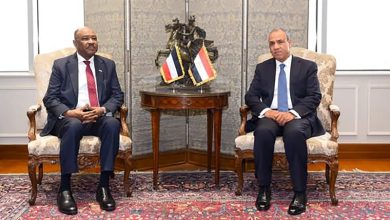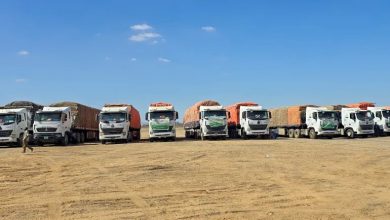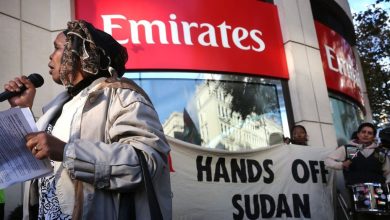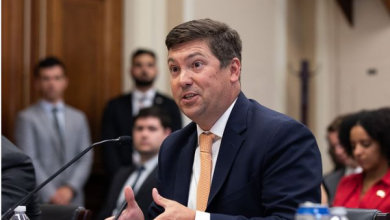Currency Changing: The Last Resort
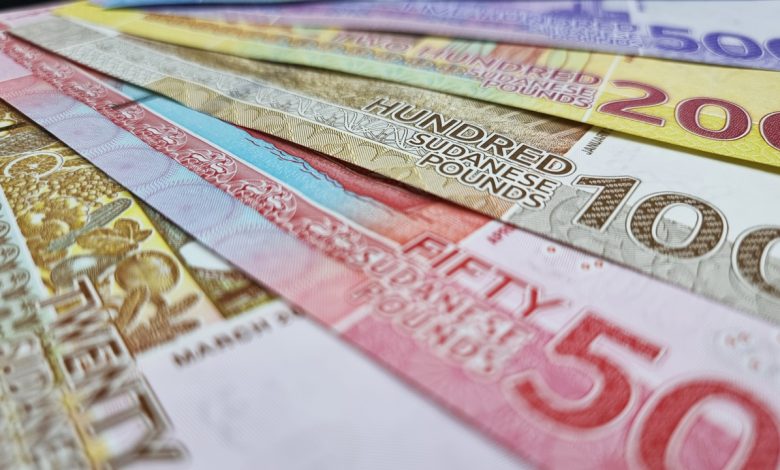
Report by Nahid Oshi
The outbreak of the Sudan war on the 15th of April has led to an increase in looting of money and property and breaking into banks, a matter that impacted the monetary supply and increased the volume of funds outside official channels, which made many people to ask for changing the currency as this was coupled with an increasing practice in currency counterfeiting.
Economist Dr. Adil Abdul Aziz points out that the currency denominations are not fully printed, or that are not numbered, or that which the Central Bank’s Issuing Department has not authorized to circulate, is considered illegal and not discharged from liability, and furthermore, possession of such money is a crime.
However, the war conditions made many people in the operating markets of Khartoum State circulate these illegal papers, using them to buy and sell, but are unable to take them to the banks that are now operating in the safe states of Sudan.
Currency Changing:
He said that the circulation of incompletely printed currency or looted from banks does not require changing the currency for reasons that the quantities seized by the element from the rebel forces at the currency printing press or from bank branches, are not that big, as these quantities are estimated not to exceed 10% of the volume of currency in circulation.
In addition, the cost of printing a new currency in printing presses outside Sudan is very expensive. The cost is put at about 700 million euros, which is not commensurate with the current Sudanese economic conditions.
It is also important to point out that many financial transactions are currently taking place between citizens and merchants, and between citizens and government institutions such as customs, through electronic bank applications, like Bankak application, which reduces the need to print currency.
Illegitimate money:
However, economic expert Dr. Haitham Mohammed Fathi disagrees with this view. He considers changing the currency one of the most effective solutions to absorb illegal money into the local economy and to help achieve a new start for the Sudanese economy, particularly with the presence of inflation, the spread of counterfeit currencies, and the high rate of evasion and transfer of money outside the country, these are among the most important reasons that call on governments to change their approach to reduce financial corruption, begin a new, strong financial era and place the lead in the hands of the highest authority in the state.
He considered counterfeiting currency one of the most dangerous crimes against the national economy of countries. This is because such a practice releases a monetary mass outside banking laws and regulations, which leads to turmoil in the financial markets and the collapse of the currency.
He said that tolerating quantities of counterfeit currency in local markets leads to the presence of banknotes without real value, as they are a currency without a cover in relation to other currencies and gold, which leads to inflation and a decline in the value of the local currency.
Dr. Mohammed Al-Nayer, yet another economic expert, said that the circulation of counterfeit currency greatly impacts the Sudanese economy and leads to a deterioration in the economic situation, therefore, the matter should be dealt with carefully.
He said that the issue of completely changing the currency at the present may be complicated and difficult due to the high cost, and printing a new currency requires some time in particular, and that Sudan needs to reconsider the currency denominations composition (1-5-10-20) pound and issue new currency as quickly as possible. He said when looting in Khartoum took place and before the spread of counterfeiting practice, it was necessary to cancel the circulation of (1,000, 500) pounds denominations in economic activity, and to limit their circulation to within the banking system because banks have the ability to recognize counterfeit denominations and thus facilitate their discovery. The electronic system must be activated, banking applications must be encouraged, and networks must be improved urgently to address the issue of the loss of the monetary mass of the banking system, as more than 90% of the monetary mass is outside the banking system compared to only 10% inside the banking system. Therefore, it was argued, this measure combats looting and smuggling, restores the monetary mass to the banking system, and brings about an improvement in the local currency exchange rate by eliminating counterfeiting and helping bring back the stolen money when it is credited and the principle of accountability and transparency: “Where did you get this from”? can be reactivated.
